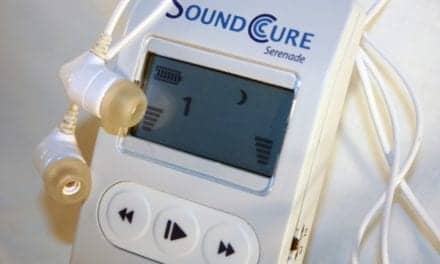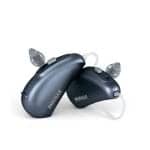The Jefferson Balance and Hearing Center of the Department of Otolaryngology – Head and Neck Surgery at Thomas Jefferson University Hospital, Philadelphia, says it is the first hospital in the city to offer the FDA-cleared Neuromonics Tinnitus Treatment, which has been proven to interact, interrupt, and desensitize tinnitus by delivering a customized neural stimulus, embedded in clinically modified music.
“Tinnitus is an awful, debilitating condition that can have a devastating impact on a patient’s quality of life,” said Thomas Willcox, MD, medical director, in a statement released by the facility. “This new treatment represents a significant step forward for a condition with traditionally limited therapeutic options. By targeting underlying neurological and psychological causes, it has been proven to offer long-lasting benefit.”
Tinnitus is the perception of sound in the ears or head when no external source is present. Often described as ringing in the ears, it affects as many as 50 million people in the United States. The Centers for Disease Control and Prevention report that one million new cases of tinnitus are identified each year, 200,000 of which are severe. Tinnitus symptoms can negatively impact normal daily activities and can lead to additional medical conditions, such as anxiety, depression, sleep deprivation, and elevated stress.
Tinnitus also has a neurological and psychological basis, says the statement. While most tinnitus cases are preceded by hearing loss, neurological factors often contribute to the deterioration in symptoms. First, the brain attempts to compensate for the hearing loss by turning up sounds internally. Ultimately a psychological component emerges, when the sufferer develops a fight-or-flight stress response to the debilitating sounds. The patient then focuses more attention on the tinnitus, perceiving it as louder and louder. Tinnitus takes increasingly significant control over their life. Thus begins a vicious cycle involving neurological, psychological and auditory factors.
Neuromonics’ noninvasive, FDA-cleared device is customized to the patient’s unique hearing and tinnitus profile. It delivers a customized neural stimulus that promotes neural plastic changes, allowing the brain to filter out the disturbing tinnitus sound, says the statement. This stimulus is delivered within spectrally modified, customized music, which engages the brain’s emotional response center, the limbic system, and thereby reduces tinnitus-related disturbance, according to the statement.
The therapy is delivered via a compact, lightweight medical device. Treatment typically occurs over an approximately 6-month period, with daily use recommended for two or more hours per day, especially when the tinnitus is most disturbing. The treatment can take place during regular activities such as reading, relaxing, or computer work. It involves a multistage process designed for optimal clinical results.
[Source: Thomas Jefferson University]




